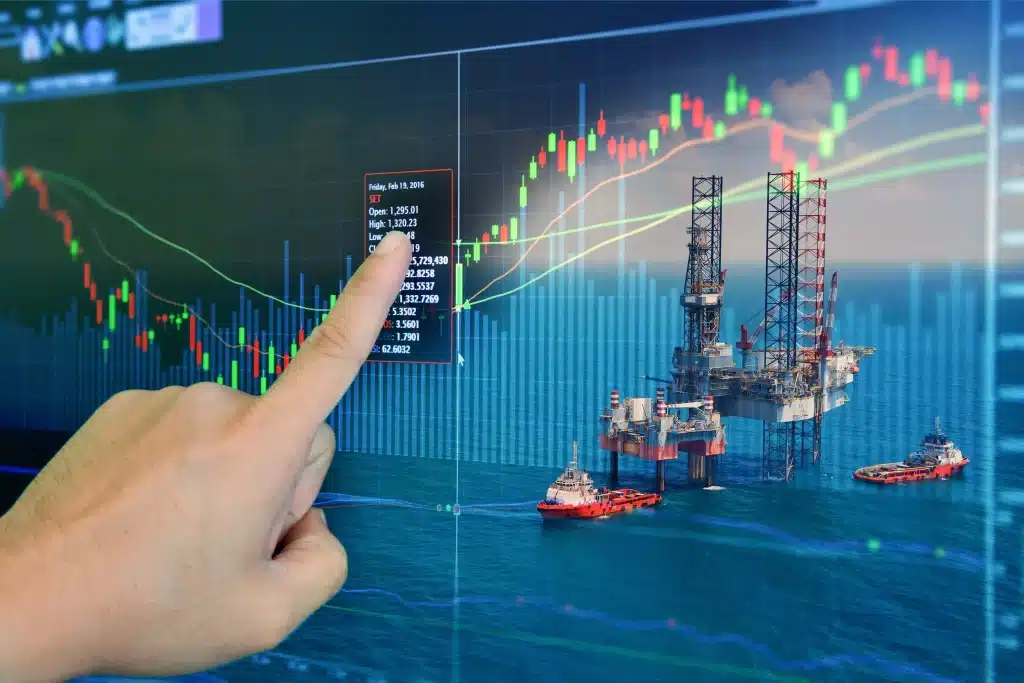Table of Contents
In today’s rapidly evolving world, the oil trading industry is experiencing significant transformations driven by technological advancements and changing market dynamics. As an SEO and senior copywriter, I understand the importance of creating compelling and informative content that ranks high on search engines like Google. In this article, we will delve into the future of oil trading, exploring the innovations and trends that are shaping the industry and propelling it. So, if you are looking for a reputable trading platform, you can visit https://oilprofit.app/.
The Rise of Digital Platforms and Blockchain Technology
Digital platforms have revolutionized the oil trading industry in recent years by streamlining the buying and selling process, providing transparency, efficiency, and accessibility. Real-time market data empowers traders to make informed decisions and execute trades seamlessly. Blockchain technology, a transformative innovation, ensures secure and trustworthy transactions, reducing fraud and manipulation risks. It enables the creation of smart contracts, automating trade settlements and reducing the need for intermediaries. By eliminating manual processes and paperwork, blockchain enhances operational efficiency and lowers costs for traders, shaping a more efficient and transparent oil trading ecosystem.
Embracing Renewable Energy Sources
As global awareness of climate change and the importance of sustainable practices grows, the oil trading industry is undergoing a significant transformation by embracing renewable energy sources. Companies are actively diversifying their portfolios to incorporate cleaner alternatives like solar, wind, and biofuels. This shift not only contributes to reducing carbon emissions but also creates new trading prospects within the renewable energy sector.
To monitor and trade the clean energy attributes, renewable energy certificates (RECs) have gained substantial recognition. These certificates represent the environmental advantages associated with generating renewable energy and can be bought and sold on various platforms. The incorporation of RECs into the oil trading market not only supports the transition towards a greener future but also provides economic incentives for the development of renewable energy sources. This integration fosters a more sustainable and environmentally conscious approach within the oil trading industry.
Artificial Intelligence and Machine Learning in Oil Trading
The advent of artificial intelligence (AI) and machine learning (ML) has had a profound impact on the oil trading landscape. These technologies enable traders to analyze vast amounts of data, identify patterns, and make accurate predictions. AI-powered algorithms can assess market conditions, optimize trading strategies, and mitigate risks.Predictive analytics algorithms can forecast supply and demand dynamics, enabling traders to anticipate market fluctuations and optimize their trading positions. Natural language processing (NLP) algorithms analyze news articles, social media sentiment, and geopolitical events to gauge their impact on oil prices. By leveraging AI and ML, traders can make data-driven decisions, enhancing their profitability and competitive advantage.
The Role of Internet of Things (IoT) in Oil Trading
The Internet of Things (IoT) is driving a profound revolution across various industries, including oil trading. IoT devices equipped with sensors and connectivity are playing a pivotal role in enabling real-time monitoring of critical aspects such as oil storage facilities, transportation vessels, and refining processes. This connectivity empowers traders with efficient inventory management capabilities, preventive maintenance insights, and supply chain optimization.
Through the collection and analysis of data from IoT devices, traders can access valuable information about asset performance, allowing them to optimize logistical operations and identify potential bottlenecks or inefficiencies. IoT technology also significantly contributes to safety and environmental compliance by facilitating early detection of leaks, malfunctions, or security breaches. Ultimately, the integration of IoT in oil trading delivers tangible benefits, including enhanced operational efficiency, cost savings, and effective risk mitigation strategies.
Conclusion
As the future of oil trading unfolds, it is evident that technology will continue to play a pivotal role in shaping the industry. Digital platforms, blockchain technology, renewable energy integration, AI, ML, and IoT are driving unprecedented changes, bringing about greater efficiency, sustainability, and profitability.Traders who embrace these innovations and stay ahead of the curve will be well-positioned to navigate the evolving landscape of oil trading. By leveraging technology, data analytics, and market insights, they can optimize their strategies, reduce risks, and capitalize on emerging opportunities. The future of oil trading is undoubtedly exciting, promising a more interconnected, sustainable, and prosperous industry.





